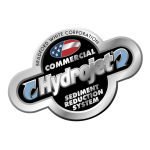If your household gets your drinking water from either a well or tap – chances are, it contains some type of PFAS contamination. If you’re searching for an effective solution to remove these contaminants from your home water supply, we’ve compiled a list of the best water filters to consider.
At Plumb-Tech, we pride ourselves on providing the best service and assistance to homeowners when it comes to their plumbing and water supply. This article will provide all the information you need about water filters that will effectively eliminate these threats and provide safe drinking water for you and your family.
Does reverse osmosis remove PFAS? How about carbon filters? Read on to learn more about which powerful filter solutions can give you peace of mind when it comes to providing fresh and pure drinking water.
PFAS – What are they?
If you are unfamiliar with PFAS contamination – you’re not alone. These man-made substances have been around for over 80 years, but they have only recently been acknowledged as potentially harmful to human health.
PFAS stands for per- and poly-fluoroalkyl substances – which are a group of substances that are used in a variety of industrial and commercial products, such as:
- Firefighting foam
- Waterproof clothing
- Non-stick cookware
Unfortunately, these chemicals are extremely persistent and don’t break down well in the environment, meaning they have spread across water supplies worldwide. Studies have linked PFAS exposure with various health issues like cancer, immune system dysfunction and developmental delays; thus, filtering them out is essential to protecting public health.
Read the next section below if you’re wondering what water filter will remove PFAS.
Evaluating different types of water filters
The following is a detailed evaluation of various filtration systems, focusing on their effectiveness as PFAS filtration systems.
Carbon filters
Carbon filters are an efficient water filtration system that utilizes activated carbon to remove impurities and contaminants from drinking water, including any organic compounds that may affect its taste or odor. They’re most useful at eliminating organic pollutants while simultaneously improving the taste and smell of drinking water.
- Pros: A cost-effective solution that can remove multiple impurities – including chlorine, volatile organic compounds (VOCs) and sediment from drinking water supplies.
- Cons: These filters do not effectively remove minerals, salts or inorganic compounds.
- Effectiveness at removing PFAS: Limited. While carbon filters can reduce PFAS concentrations, they aren’t the best way to eliminate all traces of them completely.
Reverse osmosis systems
Reverse osmosis systems offer an effective water filtration method by forcing water through a semipermeable membrane under pressure to filter out contaminants and produce purified water. But does reverse osmosis remove PFAS contaminants? Absolutely – reverse osmosis filters are highly recommended as they are effective at removing these chemicals.
- Pros: Highly effective at eliminating various contaminants – including salts, nitrates, PFAS and certain microorganisms.
- Cons: The process creates water waste and can strip away beneficial minerals from water sources.
- Effectiveness at removing PFAS: High. Reverse osmosis devices can remove more than 90% of PFAS.
Distillers
Distillers utilize water distillation to filter contaminants out of drinking water by boiling water and producing steam that condenses back into liquid after cooling off. Leaving behind most impurities – distillers are capable of purifying drinking water while leaving only a few impurities behind.
- Pros: They’re good bacteria killers and can remove heavy metals and minerals.
- Cons: They’re slow, use a lot of energy, and aren’t effective at removing volatile organic compounds.
- Effectiveness at removing PFAS: Moderate. Distillers can reduce the levels of PFAS, but aren’t as effective as reverse osmosis systems.
Ceramic filters
Ceramic water filters use tiny pores made of ceramic material to filter out dirt, debris and bacteria from drinking water. While not as comprehensive in their filtering capabilities as other methods, ceramic filters are easy to maintain. They can be highly effective at removing certain larger contaminants from drinking water supplies.
- Pros: They’re good at filtering out bacteria, sediments and parasites.
- Cons: They don’t remove chemicals, including chlorine, pharmaceuticals or PFAS.
- Effectiveness at removing PFAS: Low. Ceramic filters are not designed to remove PFAS from water.
If you’re looking for water filters that remove PFAS effectively, just remember that no one filtration method is completely foolproof. A combination of methods may be required for complete water purification and removal of PFAS.
Reverse osmosis systems stand above the rest
Reverse osmosis systems stand out among other PFAS filtration methods due to their superior effectiveness. While other systems, such as carbon filters or distillers, only achieve limited or moderate PFAS removal, this process has been proven to eradicate over 90% of harmful compounds from waterways.
The high-pressure filter is successful at removing contaminants such as PFAS pollution from water. Although resource-intensive, their high level of purification makes them an attractive solution to address water contamination from PFAS and other chemicals.
Reverse osmosis systems, in combination with other water filtration methods, such as ceramic filters and distiller disinfection systems, may also help to effectively eliminate more than just PFAS in water supplies.
It’s crucial to choose a filtration system for your specific needs. To do this, consult professional plumbers like us here at Plumb-Tech for expert assistance on improving the quality of your water.
The best type of filter for removing PFAS – ask the pros.
As discussed previously, selecting an effective water filter requires considering multiple factors ranging from types of contaminants in your water to maintenance needs for maximum performance.
Carbon filters, reverse osmosis systems, distillers and ceramic filters each provide unique strengths and weaknesses when it comes to filtering out PFAS contaminants from drinking water supplies. Does reverse osmosis remove PFAS? Yes, in fact, these systems stand out as being the most effective of the available filters.
However, no single filter can guarantee complete removal of contaminants; thus, it may be beneficial to employ multiple filtration methods. Regular maintenance, according to manufacturer recommendations, water usage patterns, taste and odor assessments and pressure changes, plays an integral part in providing a clean, safe water source.
The professionals at Plumb-Tech have the experience and knowledge to help you keep your water supply safe for you and your family. To ensure that the water in your home is as pure and healthy as possible – contact us today!





